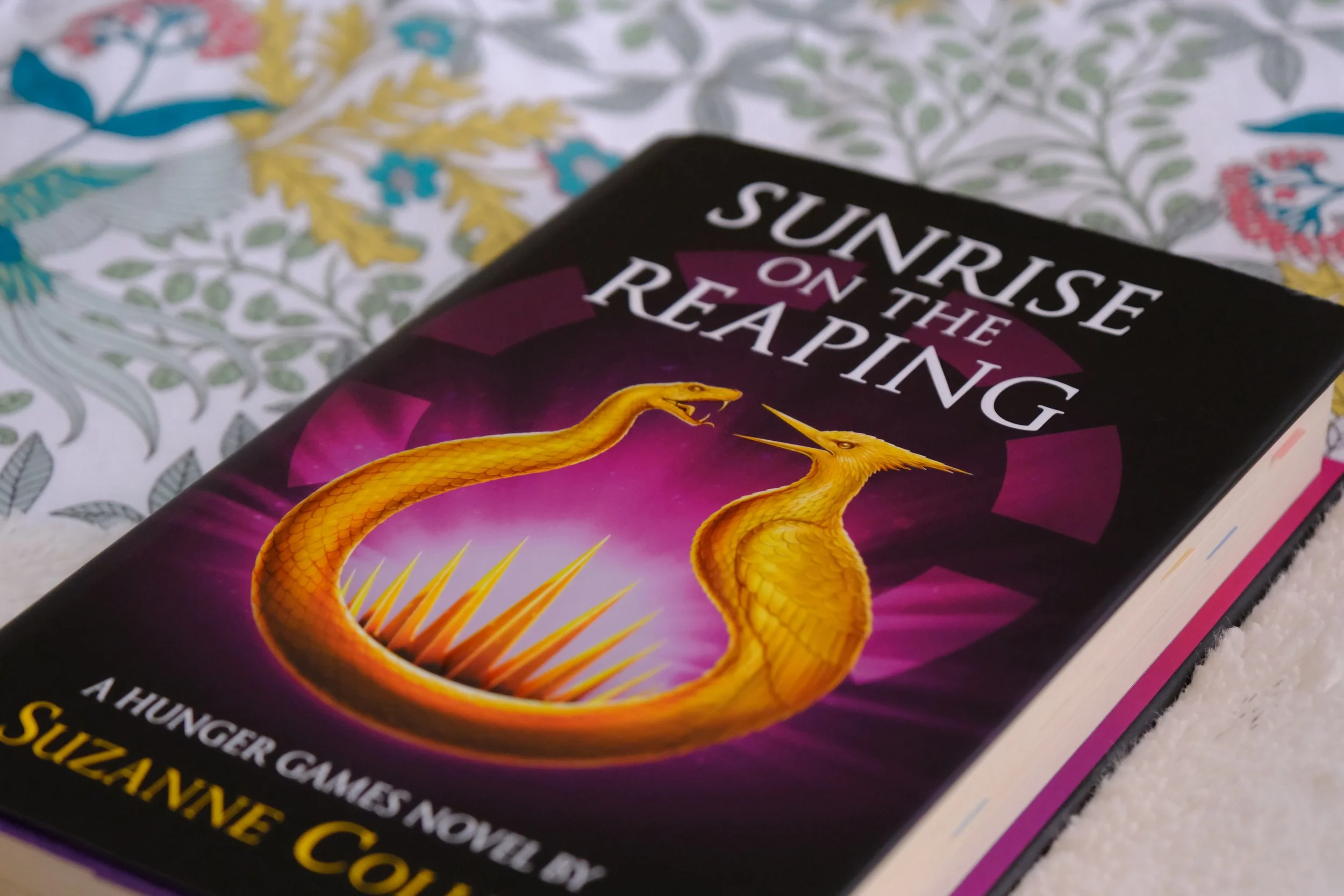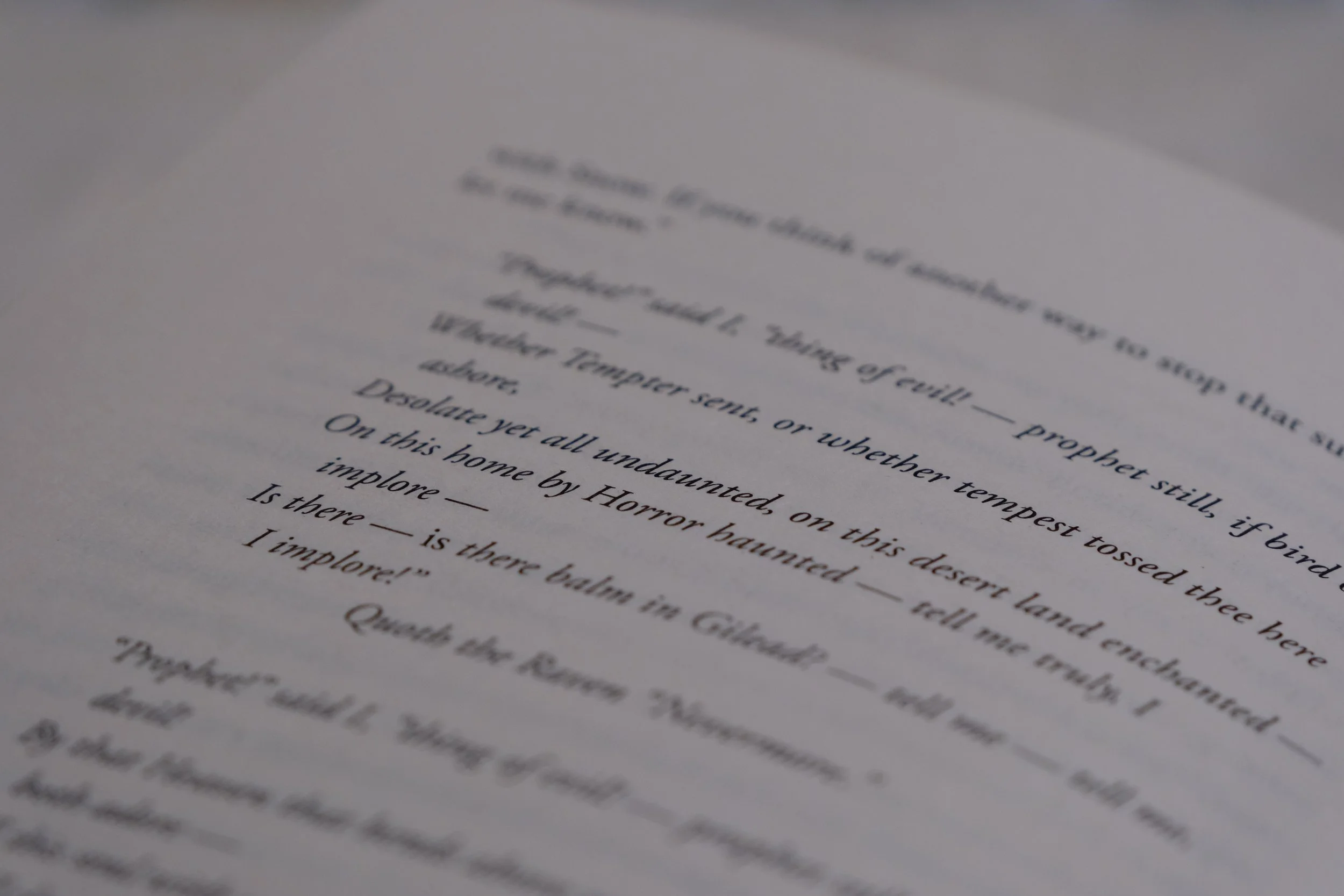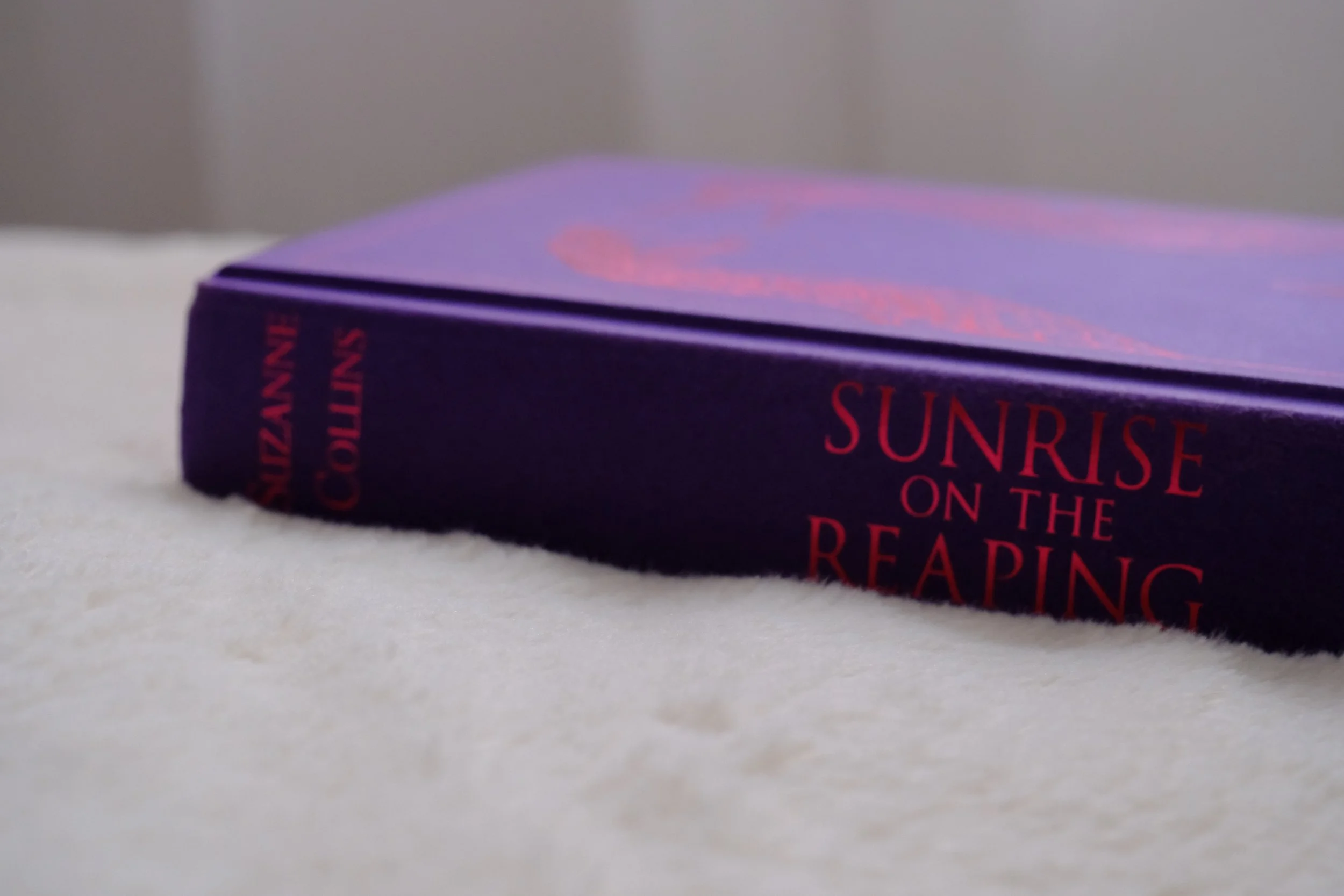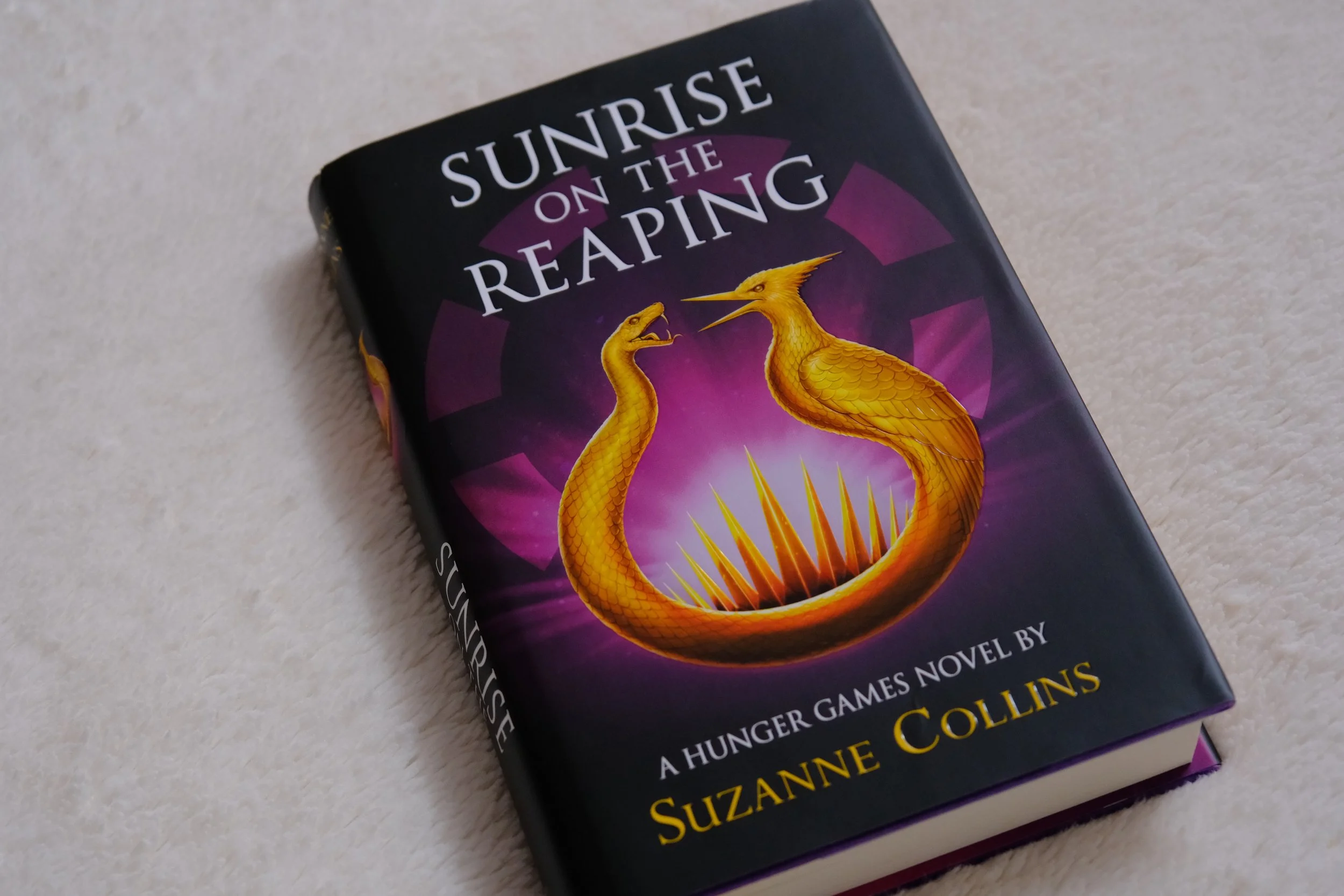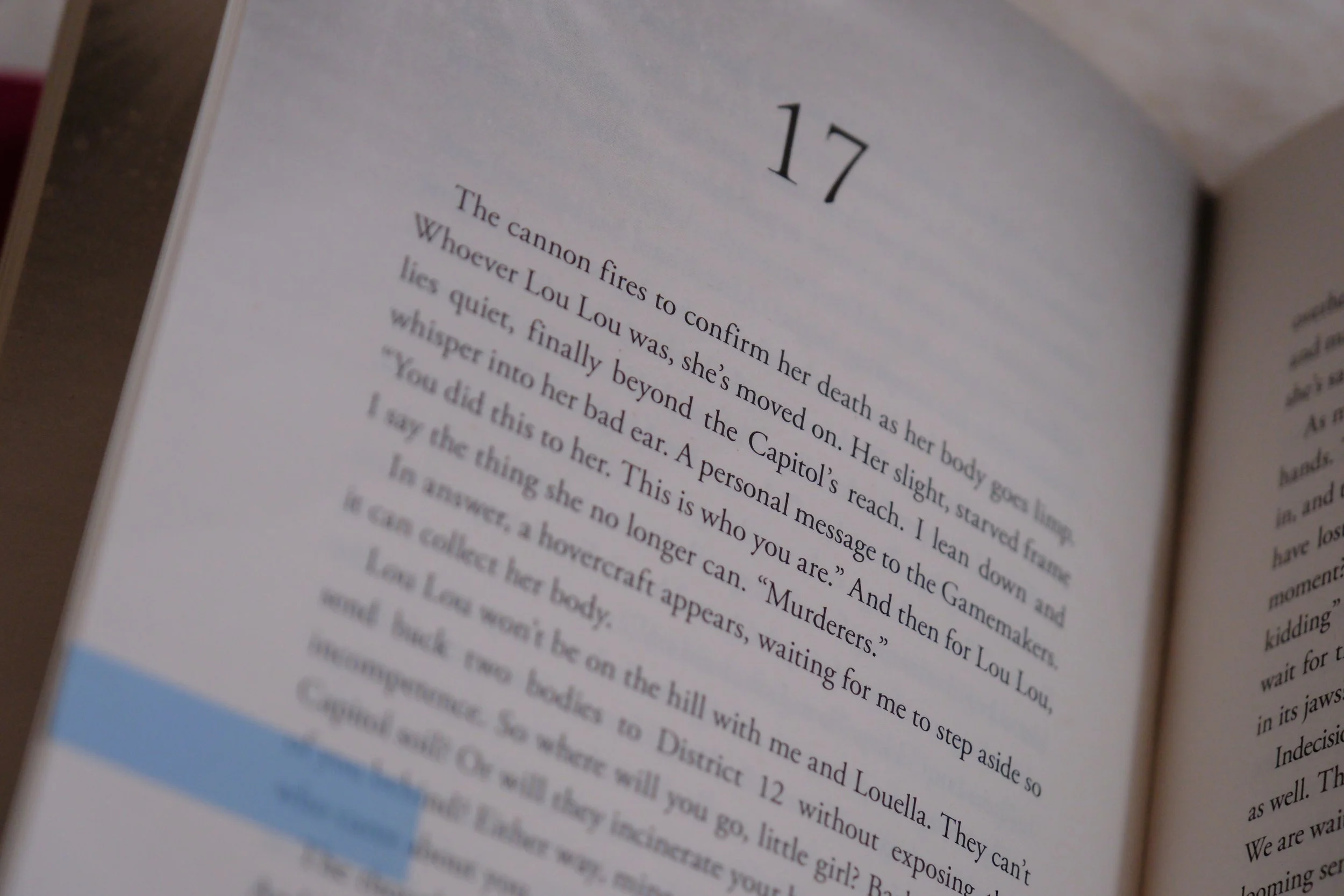Sunrise on the Reaping - Suzanne Collins
This is not a spoiler-free review!
〰️
This is not a spoiler-free review! 〰️
The origins of Haymitch Abernathy: some of my reflections on Sunrise on the Reaping
Welcome back to Panem. Once again, Suzanne Collins has me in tears and at this point, I think it’s time to say, “Enough, Suzanne, enough!” I cried my eyes out.
So to start with, the title in itself was so poetic to me because of the ending and its meaning for Haymitch, it was really the summary of his life adventure:
“This is Lenore Dove’s work. Her sign. Her message to me now. Her reminder that I must prevent another sunrise on the reaping. And it says, “You promised me.” With that, she condemns me to life.”
Sunrise on the Reaping was the prequel we had all been waiting for, especially me, since Effie and Haymitch are among my favorite characters from the original Hunger Games (along with about twenty others, of course). We learn of District 12 during a period when it was not yet plunged into the same poverty seen 24 years later during Katniss’s Games. We get introduced to Haymitch’s family, but don’t get attached because I well remember that Haymitch does absolutely not have a brother in the original Hunger Games trilogy !
They didn’t appear a lot in the story in itself but were to me haunting the narrative within Haymitch, showing where his motivation comes from and adding a softer, more vulnerable side to him. They also foresee tragedy because again THEY ARE NOT IN THE ORIGINAL HUNGER GAMES. And that made me tear up reading about Sid the first time around.
« Happy birthday!” My ten-year-old brother, Sid, gives my shoulder a shake. “You said be your rooster. You said you wanted to get to the woods at daylight. »
Haymitch gets “reaped” on his birthday and has to participate in the Quarter Quell (a particularly savage iteration of the Games designed to remind the districts of the Capitol’s dominance). From there on, we witness his transformation from an ordinary teenager, who is in love and young and full of hope and dreams into the reluctant drunk who would one day guide Katniss and Peeta through their trials. And we see him failing to be the hero he wished he could be in his own. By the end of the book you really get why he’s so bitter, guarded, and … simply hurt. All those feelings that have been with him for years and years, haunting him.
“She’s not an easy person. She’s like me, Peeta always says. But she was smarter than me, or luckier.”
In this book, Collins doesn’t just add more background to Panem’s world: she really digs into the political and social stuff that shapes life in the districts. It’s a tough place, full of quiet rebellion, harsh control, and people just trying to get by.
Now, I have to say: some parts felt a bit too fan-servicy to me (and I know a lot were so happy to meet those familiar faces again).
And I also had my difficulties with Lenore Dove... she felt kind of like a faint echo of Lucy Gray but without the spark. I had the impression of a missed opportunity. She kind of floated in and out without leaving much of a mark. I get that the focus is on Haymitch and his perspective, so the story isn’t really about exploring her character in depth. But precisely because of that, I found it disappointing not to form any real connection with her like Haymitch had.
So, going on: I know some critics have argued that Snow’s ominous presence loses its edge in this story, pointing out that his face-to-face encounter with Haymitch feels, to them, out of character for someone so cold and calculating as he was in the original trilogy. However, I disagree. People change over time, and it’s reasonable to believe that even Snow would've evolved, learned from his past mistakes, or adapted his approach. After all, none of us act exactly the same way we did 25 years ago.
That said, there are world-building inconsistencies. The Capitol here appears far more powerful and controlling, manipulating both the arena and the narrative with a somehow really greater precision than in Katniss’s Games?? This actually conflicts with the idea that Katniss’s rebellion was the turning point that challenged and weakened the Capitol’s tight grip.
But (I know I seem to change my mind a lot, but honestly, all these feelings can exist at once): to be honest, I like the idea of that a broader rebellion that had been quietly brewing. It does make more sense that Katniss and her allies weren’t the first attempt; that they were in fact part of a longer chain of resistance. Especially considering that Katniss herself never intended to lead a revolution in the first place, she only volunteered to save her sister and became the symbol they were looking for.
Another point I had to mention is that altogether, I couldn’t help thinking how strangely lucky Haymitch seemed......at least at first. But then I quickly reframed it: his survival was no mercy. We always knew he would make it out, of course. But the moment President Snow promised he would die, I knew it was a lie, I felt it coming. Not killing Haymitch was the real punishment. Death would’ve been simple. Instead, Snow left him alive to carry the weight of everyone he ever cared about, to watch them be erased one by one. Making him wait for death, expect it, even welcome it: that’s exactly the kind of slow, deliberate cruelty Snow excels at. That slow, psychological torture? Classic Snow (yes talking about him like I know him - I mean I spent nearly a thousand pages despising him since I was 16 so…)
Finally, I know many readers disliked the Lou Lou arc, but !! she may seem like a minor or frustrating character...
I thought that she had an important purpose. Her story shows how the Capitol uses propaganda to dehumanize people. The fact they stole her identity, turning her into a symbol, and sending her to die for …show. Her quiet, almost emotionless death isn’t meant to be dramatic, but to highlight how the regime erases lives without a blink or without even care. Through her, we also see Haymitch’s compassion since he still protects her, even when she’s just a shell of a person. Exactly that says a lot about him as well.
Altogether (to end this very long review already) despite its flaws, Sunrise on the Reaping deepens my fondness of the HG books and sharpens Collins political message again (as if we didn’t know but I still like reading about it). It reminds us that trauma doesn’t end with survival, and how trauma shapes someone like Haymitch.
